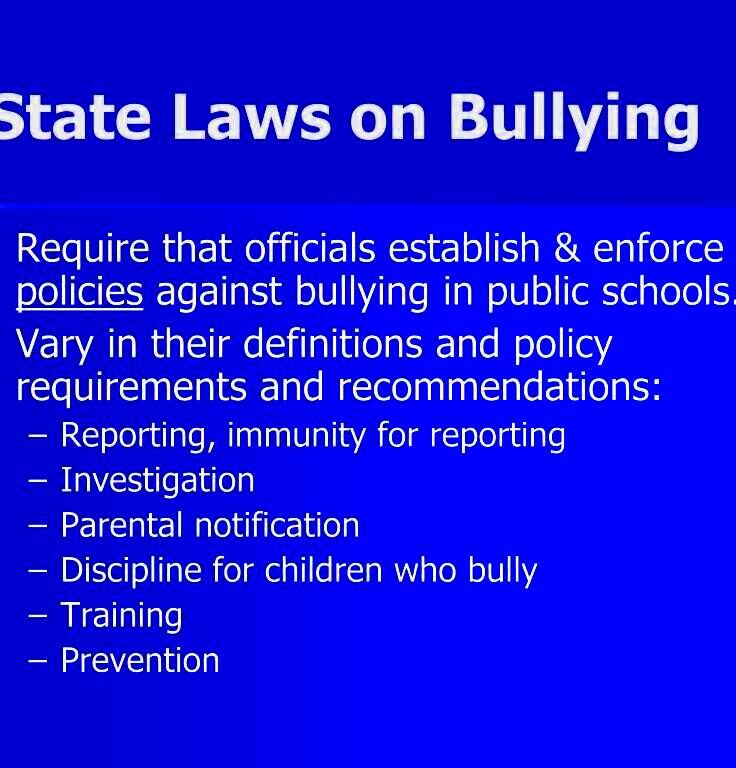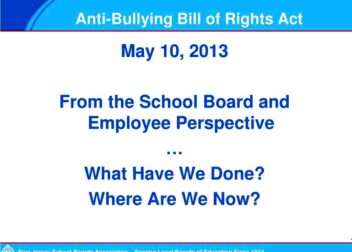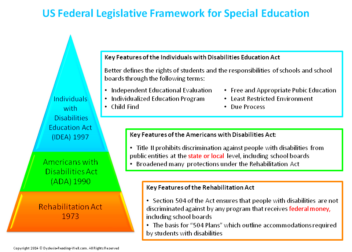Compliance with School Bullying Prevention Laws in Pennsylvania
In Pennsylvania, school bullying prevention laws aim to create a safe and supportive environment for all students. Bullying can have serious effects on children’s emotional and mental well-being, making it crucial for schools to take a stand against it. These laws help ensure that schools have clear policies and procedures to address bullying effectively.
Understanding these laws is essential for educators, parents, and students alike. Schools must not only recognize what constitutes bullying but also actively work to prevent it. This involves training staff, informing parents, and educating students about the issue. Awareness of the laws can empower communities to foster a culture of respect and kindness.
Importance of Compliance with Bullying Prevention Laws
Compliance with bullying prevention laws is vital for several reasons:
- Protecting Students: Ensuring a safe school environment is paramount. Compliance helps protect students from emotional and physical harm.
- Legal Responsibility: Schools that fail to comply may face legal repercussions, including lawsuits and penalties.
- Promoting a Positive School Culture: Adhering to these laws fosters a culture of respect and inclusion, making schools better places for learning.
- Encouraging Reporting: When students know their school takes bullying seriously, they are more likely to report incidents.
Overall, compliance is not just a legal obligation; it is a moral responsibility to ensure that every child feels safe and valued in their school environment.
Key Components of Pennsylvania’s Bullying Prevention Laws
Pennsylvania’s bullying prevention laws include several key components that outline how schools should handle bullying. Here are some of the most important aspects:
- Definition of Bullying: The law provides a clear definition of what constitutes bullying, including repeated harmful behaviors directed at a student.
- Policy Development: Schools are required to develop and implement a comprehensive anti-bullying policy, which includes guidelines for reporting and investigating incidents.
- Training Requirements: Educators and staff must receive training on recognizing and addressing bullying, ensuring they have the tools to intervene effectively.
- Reporting Mechanisms: Schools must establish a system for students and parents to report bullying incidents confidentially.
- Support for Victims: The laws emphasize providing support and resources for students who have experienced bullying.
By incorporating these components, Pennsylvania aims to create a proactive approach to bullying prevention that involves the entire school community.
Responsibilities of Schools and Educators
Schools and educators play a crucial role in preventing bullying and creating a safe environment for students. They are not just responsible for teaching academic subjects; they also need to foster a culture of respect and empathy. This means implementing effective strategies to combat bullying and supporting affected students. Understanding these responsibilities is essential for school staff, parents, and students to work together towards a common goal.
Here are some key responsibilities schools and educators must fulfill:
- Establishing Anti-Bullying Policies: Schools must create clear, written policies that define bullying, outline procedures for reporting, and specify consequences for bullying behavior.
- Training Staff: Regular training sessions should be held to educate teachers and staff about recognizing, preventing, and responding to bullying.
- Promoting Awareness: Educators should implement programs and activities that raise awareness about bullying and its effects on students.
- Creating Safe Spaces: Establishing a positive school climate where students feel safe to express their concerns is vital. This can include counseling services and peer support groups.
- Monitoring Student Behavior: Schools should actively monitor student interactions in classrooms and on playgrounds to identify potential bullying situations early.
By fulfilling these responsibilities, schools can create an environment that not only prevents bullying but also promotes overall student well-being.
Reporting and Investigating Bullying Incidents
Effective reporting and investigating of bullying incidents are essential to ensure that schools respond appropriately and swiftly. A transparent process helps build trust within the school community and encourages students to report bullying. It also sends a strong message that bullying will not be tolerated.
Here are the steps involved in reporting and investigating bullying:
- Reporting Mechanism: Schools must provide accessible and confidential ways for students and parents to report bullying, such as anonymous hotlines or online forms.
- Documentation: Upon receiving a report, the school should document the details, including the date, time, location, and nature of the incident, as well as any witnesses.
- Investigation Process: An impartial investigation should be conducted promptly. This includes interviewing the victim, the alleged bully, and any witnesses.
- Taking Action: Depending on the investigation’s findings, appropriate actions should be taken, which may include disciplinary measures, counseling, or mediation.
- Follow-Up: Schools should follow up with the victim to ensure their safety and well-being, and to evaluate the effectiveness of the response.
By implementing a clear reporting and investigation process, schools can effectively address bullying and create a more supportive environment.
Role of Parents and Guardians in Prevention
Parents and guardians are vital partners in preventing bullying and ensuring their children’s safety at school. Their involvement can significantly influence their child’s behavior and attitudes toward bullying. By working together with schools, parents can help create a positive and supportive environment for all students.
Here are some key ways parents and guardians can contribute to bullying prevention:
- Open Communication: Encourage open conversations about bullying. Parents should ask their children about their day and discuss any incidents of bullying or teasing they might have experienced or witnessed.
- Educate about Bullying: Teach children what bullying is and the different forms it can take, including physical, verbal, and cyberbullying.
- Model Empathy: Demonstrating empathy and kindness in everyday interactions helps children learn to treat others with respect.
- Monitor Online Activity: Keep an eye on children’s online interactions. Parents should educate their kids about safe online behavior and the importance of reporting any cyberbullying.
- Collaborate with Schools: Attend school meetings and events, and communicate with teachers and staff about any concerns regarding bullying. Building a good relationship with the school helps ensure that parents are informed and involved.
By taking an active role in their child’s life, parents and guardians can help create a culture of respect and support, making it less likely for bullying to occur.
Resources for Schools and Communities
Creating a safe environment for students is a team effort that involves schools, families, and communities. Fortunately, there are many resources available to help schools and community members effectively address and prevent bullying. These resources can provide valuable information, training, and support to ensure a proactive approach to bullying prevention.
Here are some key resources that schools and communities can utilize:
- National Center for Bullying Prevention: This organization offers various resources, including toolkits, training programs, and educational materials for schools and communities.
- StopBullying.gov: A federal government website that provides information on bullying, prevention strategies, and how to report incidents.
- Local Counseling Services: Many communities have counseling services or mental health organizations that offer support for victims of bullying and training for educators.
- Workshops and Training: Schools can organize workshops for teachers, staff, and parents to learn about bullying prevention and intervention techniques.
- Peer Support Programs: Implementing peer mentorship or buddy systems can empower students to help each other and promote a positive school culture.
By utilizing these resources, schools and communities can foster a collaborative effort to combat bullying, creating a safer environment for all students.
Frequently Asked Questions about Bullying Prevention Laws
Understanding bullying prevention laws can be complex, and many people have questions about their implications and how they are enforced. Here are some frequently asked questions that can help clarify common concerns:
- What defines bullying under Pennsylvania law?
Bullying is defined as an intentional electronic, written, verbal, or physical act that is directed at a student and occurs in a school setting. - Are schools required to have an anti-bullying policy?
Yes, Pennsylvania law requires all schools to develop and implement a written anti-bullying policy. - What should I do if my child is being bullied?
Report the incident to school authorities immediately. Encourage your child to talk about their experiences and ensure they feel supported. - What happens if a school does not comply with bullying laws?
Schools that fail to comply may face legal actions, including lawsuits, and may be subject to oversight by state education agencies. - How can parents help prevent bullying?
Parents can educate their children about bullying, encourage open communication, and work closely with schools to promote a safe environment.
These questions reflect common concerns and provide important information for anyone looking to understand bullying prevention laws better.
Conclusion on Compliance with School Bullying Prevention Laws
In conclusion, compliance with school bullying prevention laws is essential for creating a safe and nurturing educational environment. Schools, educators, parents, and communities must work together to understand the laws and implement effective strategies for preventing bullying. By taking proactive measures, such as establishing clear policies, providing training, and fostering open communication, we can ensure that all students feel safe and supported.
Moreover, understanding the resources available and encouraging involvement from parents and guardians can significantly enhance these efforts. Remember, bullying not only affects the victims but also impacts the entire school community. By adhering to the laws and promoting a culture of respect and kindness, we can help every child thrive in a positive school atmosphere.


